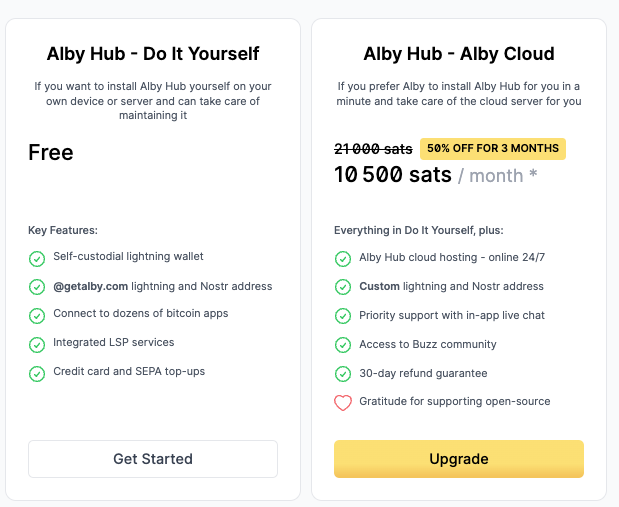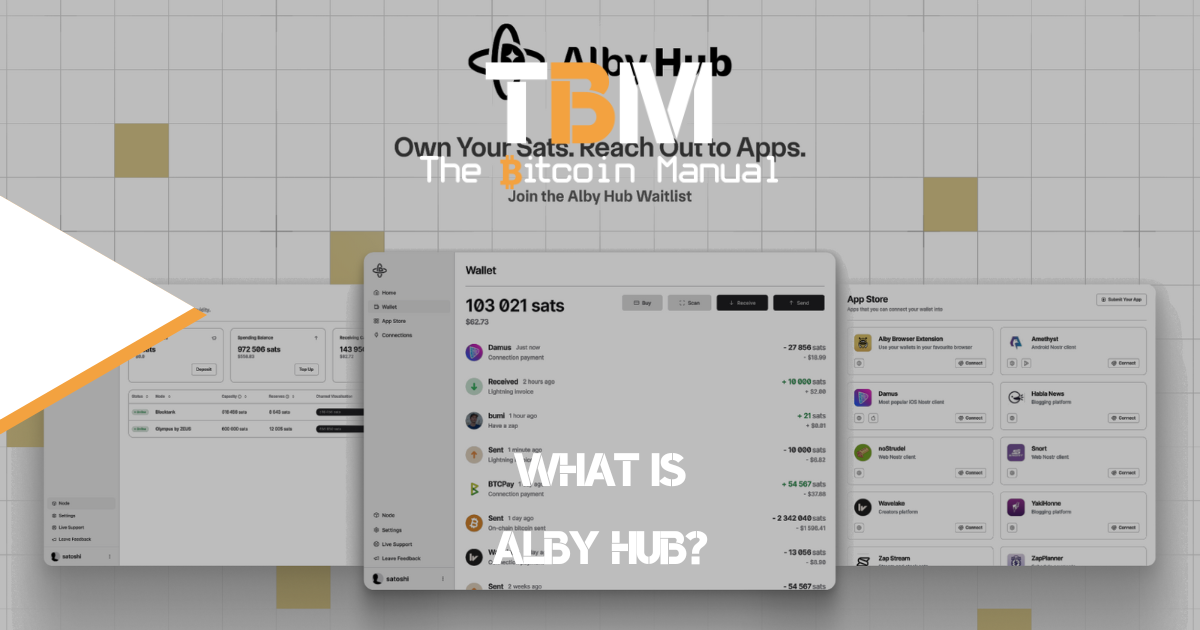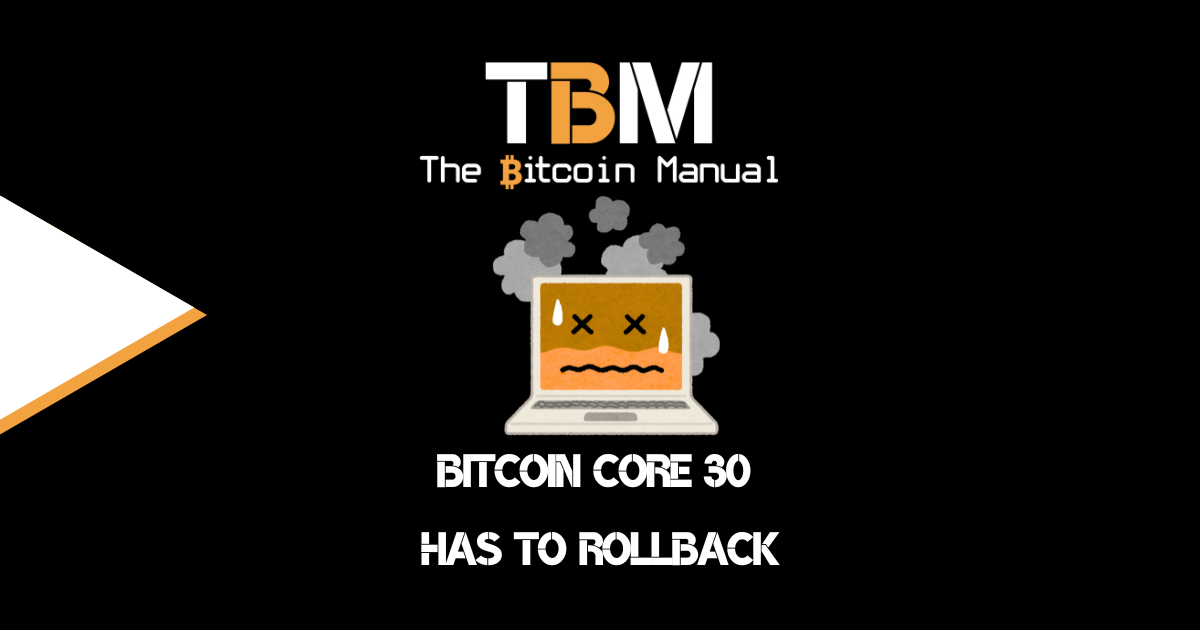The Lightning Network is a layer-two scaling solution for Bitcoin, promising faster, cheaper, and more scalable transactions, and once you get going, there really is no going back; the experience is as smooth as butter, but that’s only for those of us who have already been through all the pain and mistakes of running our own node and more importantly didn’t give up after losing sats or spending hours getting your node in order.
Lightning takes the old boomer coin and adds a turbocharger to it, making it capable of handling millions of transactions per second. However, setting up a Lightning node has traditionally required a deep understanding of complex technical concepts, deterring many from taking control of their Bitcoin.
Not everyone wants to be the Bitcoin mechanic, looking under the hood and tinkering with the beast directly; some of us just want someone to do it for us, and that’s likely why custodial lightning wallets remain so popular.
The gap between non-custodial and custodial is still quite a canyon, and the leap requires a brave soul with time and sats to spare. Thankfully, some projects are trying to build a drawbridge between the two: LSPs, hosted nodes like Greenlight, and hosted channels, adding some optionality to the mix.
The Custodial Wallet Conundrum: Your Bitcoin, Someone Else’s Keys
Custodial wallets, where a third party holds the private keys to your Bitcoin, are convenient. Still, this approach introduces a significant risk: the security of your funds is entirely dependent on the custodian. High-profile hacks and thefts have shown us that these custodial services are not infallible.
While we’ve also seen onerous regulations in some parts of the world forcing custodial wallets to KYC their users, forcing wallets to build customer lists and match them with balances only adds to the cost of running your service while adding another data honeypot that could expose users to risks further down the line.
Custodial wallets have had their time in the sun to help onboard users. Still, we need something more robust to migrate users to should they wish to take self-custody or if they are forced to do so by new regulations or a wallet provider going belly up.
Alby Hub is more than a self-custodial lightning wallet.
— Alby 🐝 (@getAlby) July 24, 2024
It is a one-click install node that lets you seamlessly connect to dozens of Bitcoin apps (thanks, @nwc_dev!) #Noderunning and #Sovereignty has never been this easy. pic.twitter.com/OLJtkxIybQ
Alby Hub: Simplifying Lightning Network Self-Custody
Alby Hub is here to offer up another solution. The Alby team is well known for its user-friendly browser wallet that made it easy to interact with Lightning and Nostr-based apps, but its custodial account can only take on so much strain before the risk of managing so many users becomes a massive target for them.
Of course, their wallet allows you to connect your own node or use a 3rd party custodial wallet like Blink, as well as hosted nodes through Voltage; Alby has decided to add its own native option.
Now, with Alby Hub, anyone can run their own Lightning node without the technical hassle. Imagine having complete control over your Bitcoin with the ease of use you’d expect from a traditional wallet.
Alby Hub integrates a one-click Lightning node, once deployed you will have a self-custodial Lightning wallet and a native app store that enables easy connection between a user’s Lightning wallet and other applications such as Damus, Stacker News, podcast apps, and more with the help of Nostr wallet connect.
How does Alby Hub work?
- One-click setup: No more complex configurations or command-line interfaces. Alby Hub provides a simple, guided process to get your node up and running in minutes.
- Intuitive interface: Manage your Lightning channels, send and receive payments, and explore the Lightning ecosystem with an easy-to-use dashboard.
- Security: Your private keys remain in your control at all times. Alby Hub prioritizes security to protect your Bitcoin.
- Integration: Connect to a variety of Lightning-enabled apps and services, expanding the possibilities of what you can do with your Bitcoin.
“At Alby, we always focused on building tools and protocols to natively use the Lightning Network on the web like the Alby Extension, which changed the way Lightning is used in web browsers. With Alby Hub, we are now taking Lightning Network self-custody to the next level by rethinking the utility behind running a lightning node. What does a node and wallet look like that can integrate with any bitcoin-powered app with just a few clicks? With Alby Hub, users now have endless possibilities for self-sovereign payments on the web without the technical overhead.”
Michael Bumann, the founder of Alby
Alby Hub in the cloud
Alby Hub is a full-fledged lightning node (LDK by default; however, it does support other backends) with a friendly web platform to manage it. The code is open-source, and the wallet is self-custodial – so despite the setup you choose, only its owner knows the keys.
Supported Backends
- LND
- Breez
- Greenlight
- LDK
- Phoenixd
- Cashu
The easy option is to run Alby Hub with the paid option of Alby Cloud. The node is run remotely, and you connect to it with your unique private key. The paid Alby Cloud has additional features, like a customizable Lightning Address, a Nostr Identifier, Podcasting 2.0 credentials, access to the Alby Buzz community, and live support to help you with setup and channel management, among others.
The Alby Cloud can be set up for a recurring fee of 21,000 sats per month, which you can factor in if it’s worth spending that for a few months or buying a node for the upfront cost.
The Cloud plan ensures your node is always online, has a clearnet IP for efficient payments, and allows you to open private channels when needed; you won’t need to worry about routing and being well-connected – you can easily open channels with recommended Lightning Service Providers, and they ensure there is a payment route to your node.
The easy channel management takes a lot of strain off the first-time user and allows you to get into the water with water wings so you can stay afloat as you learn the ropes or run a Lightning node.

Host your own Alby Hub
If paying to host your node isn’t appealing, you can opt for the DIY option since Alby Hub is designed to be run by you on a desktop, your current node, any server or even on a Raspberry Pi for free. This approach combines the security of self-custody with the convenience of a self-custodial Lightning wallet ready to be adopted by the masses.
A node can be run anywhere and accessed from everywhere. If you’re using popular Bitcoin node management software like Umbrel or Start9, look out for the Alby Hub app, which should be coming to an app store near you.
Playing around with this new Alby Hub thing and honestly its incredible to me how far we've come in Lightning.
— L0la L33tz (@L0laL33tz) July 25, 2024
Six years ago I was running a RaspiBlitz in my bedroom that almost caught fire, today you can zap me straight to my self-custodial wallet where I can manage my channels… pic.twitter.com/2dh1xwdijC
Stacking more node runners
The road to becoming a non-custodial Lightning wallet user is rough and easy to stuff up. Trust me, I’ve been there, lost the sats, ran the channel backups, dealt with the forced closures, and got no t-shirt; I just lost the shirt off my back.
I can understand why it can feel so daunting to manage a node, especially when you’re running it on your own device; a simple trip of the plug and your Lightning node is cooked, so having a middle-ground where the tech is off-site and handled by pros, and you can just handle the little bit of management is an attractive compromise.
By empowering individuals to take control of their Bitcoin, Alby Hub is a crucial step towards a more decentralized and secure financial future. It’s time to break free from custodial wallets and embrace the power of self-custody. With Alby Hub, you’re not just holding Bitcoin; you’re owning it, using it and spending it without permission.
As you become more comfortable, the great part is you can easily migrate your setup to a home node backend, and you will not need to learn about new interfaces to make the transition smoother.
Consider Alby Hub, a lightning node training ground, where you’ll pay a monthly fee for the training wheels until you’re ready to go out on your own.
Do your own research.
If you want to learn more about Alby Hub, use this article as a starting point. Don’t trust what we say as the final word. Take the time to research other sources, and you can start by checking out the resources below.




